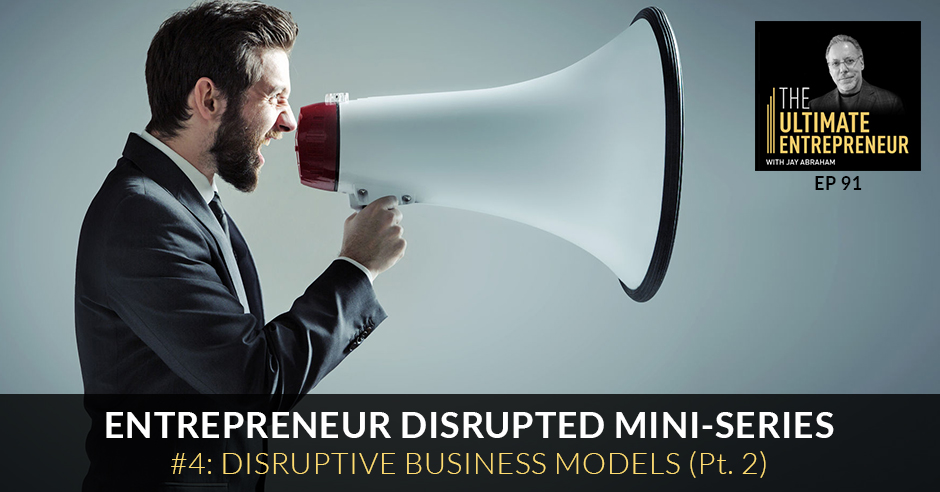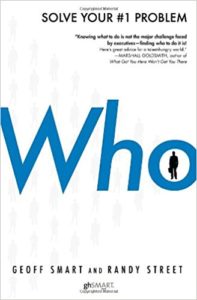Entrepreneur Disrupted Mini-Series – #4: Disruptive Business Models (Pt. 2)


Here in the Entrepreneur Disrupted mini-series, there will be lots of valuable resources on how to disrupt yourself and your industry. We are sharing a lot of knowledge that you’re not going to get in business school. These are practical things that experts have gleaned from their careers without a business model whatsoever. Dave Asprey and Jay Abraham share a bunch of knowledge about disruptive business models that every business owner wishes they knew back when they were just getting started. Jay charges $100,000 a day for his time. By having him on as a co-host of the podcast, Dave gets to learn from him all the time, which is like free consulting: not just for him, but for you as well! Don’t waste this rare opportunity to grow as an entrepreneur with an exclusive sneak peek into the world of disruptive business models of success.
Listen to the podcast here:
Entrepreneur Disrupted Mini-Series – #4: Disruptive Business Models (Pt. 2)
We’re here to teach you how to disrupt yourself and disrupt your industry and basically share a lot of knowledge that you’re not going to get in business school and things that we’ve both learned in our careers without a business model whatsoever. We’re here to share a bunch of knowledge about business, stuff that we wish we knew when we were getting started. Jay charges $100,000 a day for his time. By having him on as a co-host of the podcast, I get to learn from him all this time, which is like free consulting. I don’t know if I ever mentioned this but at least ten years ago, I bought one of your $500 books and read it and got great value from it. I don’t know this Jay Abraham guy. This was ten years ago before I was familiar with all your work. I was like, “This book can’t be as good as he says it is in this incredibly well-crafted sales letter. I’m going to buy it but I’m sure I’ll send it back.” Which is what 99%of people say when they buy it, especially entrepreneurs, I’m like, “It’s too much work to send it back. I’ll just keep it.” It turns out it was worth $500. It was a really good book. It’s hard to imagine that I’m sitting here with you and we’re having these cool conversations. We’re sharing a lot of value with people listening.
You’re very gracious. Reciprocally, I don’t think I’ve met anybody I’m more impressed with not just in your knowledge base but in your intention for the world in general to make them capable of performing not just at, but well above what they even think is possible in so many different aspects of their life, so this is a pleasure.
We ended the last one at an interesting point. We’re talking about business models and you explain you have this secret ability to look at something, see the different angles and it’s intrinsic to what you do.
It’s a CAT scan perspective.
I’ve called myself a walking event correlation engine. An artificial intelligence in the tech world, event correlation is this idea of saying, “Something happened over here and it actually is correlated with something happening over here but no one noticed the correlation.” It turns out, it’s probably causation. We don’t know for sure but this is what hackers do. “I do this little thing over here. I can get in,” and that mindset, it’s similar to systems thinking thing and that makes for good entrepreneurs who make absolute disasters. Because if you have a mindset like that, you probably can do things but you leave bodies in your wake and that you’re not that operationally savvy. You can be operationally savvy but it’s not your instinct. It’s not what you do because what you want to do is create not operate. Do you agree with that supposition?
I do. You become a cadaver entrepreneur instead of an entrepreneur disruptive?
That’s how you and I would see it. There are very successful cadaver entrepreneurs who are way less intuitive, crazy disruptive but run companies doing hundreds of millions of dollars.
They’re very disciplined and some of them are adding great value to it so it’s not a slam. When I go hang with my type of entrepreneur like at the Dan Sullivan Strategic Coaching events or JJ Virgin’s Mindshare, what’s going on with all of these different groups is I get to spend time with entrepreneurs running companies bigger than mine, which is one of those little bonus tips. One of the first things you should start doing as entrepreneur is find a way to hang out with people way more successful than you. That’s been a huge fuel for growth for me. I’ve been very successful in my career. I’ve always had this opportunity in the industries where I was, but now I’m doing it with random entrepreneurs from different industries. My kind of entrepreneur who’s maybe more attracted to strategic coach, the ADD disruptor correlator, someone with a mind like yours too, the biggest pain point that I hear every one of these networking events is, “I just need someone to run operations for me. I just need a good COO.” On the flip side, the COO entrepreneurs are saying to themselves, “I just need someone to help me with strategy so I can be more disruptive.” How do you reconcile that? Let’s put on the COO hat, which doesn’t fit for either one of us. If you were a COO and you wanted to attract a Jay Abraham or a Dave Asprey as a co-founder or to come in and do something, what would you do?
Let’s divide and conquer. First of all, let’s polarize if we’re going to be very gracious and generous but we’re targeting people who want to be disruptors more than anything. That stated, what I would do is this. You can’t hire what you want if you don’t know what it is. You can’t hire what you want if they don’t have any demonstrable history of not just very, very masterfully and diligently running an enterprise and all its moving parts but nourishing and nurturing constant innovative nonlinear thinking. You’ve got to find somebody who isn’t just giving you lip service, who’s got the hard skill sets. Pharmaceutical. I don’t remember the numbers I used to but something like 90% of their R&D money is spent on things that fail. They have very detailed people running everything but they know if they don’t have that part of the puzzle, they’ll never have the breakthroughs. You have to have somebody that if he or she is going to be your operating head, they have to be great at making what’s working work and sustain but they can’t have contemptuous disdain or try to make you what you are not. If they do, that kills the goose because as Peter Drucker said, “Your job in business is to continuously and purposely work to make what you’re doing, how you’re doing, even sometimes who you’re doing it for obsolete. Because if you don’t do it to and for yourself, you can rest assured a multitude of other people are going to do it to you.”
That is an elegant restatement of The Innovator’s Dilemma, the Clayton Christensen stuff, which shaped a lot of my career. Why is it that these young upstarts can go into traditional industries and just smack them over the head and have incredible growth rates in tech? What usually happens is the disruptors end up buying the companies they disrupted in stupidly short periods of time. We’re going to see even more of that in industries that weren’t traditionally disruptible because the velocity of business has changed, because the tech made it a lot easier. You get enough customers, all of a sudden you’re looking like what are the interesting things you could do to go into an industry that was breaking or broken or wasn’t working and just basically buy who’s there and then fix it. I find that the COO types, in my career, they often times get brought in later in companies. Some of them, they want to found companies. They can be founders and they want to disrupt but they’re saying, “I’m going to fill in the parts I don’t have.” My career in Silicon Valley very often I had a title of Strategic Planning or Corporate Strategy or something like that. These are titles that don’t mean much.
Or they have totally different definition in each place.
That’s why I like them. In fact, the best thing you can do is have a title where no one quite knows what you do.
Can I do business development?
Yeah, VP of Business Development. It’s a career limiting title. Unless you’re like, “When I was here, I grew the business by $100 million,” and I’m like, “You’re that kind of biz dev.” It also can be like, “I walk around and do nothing.” Strategies are the same title but it also is important. The reason I was brought in on those roles is because they wanted to see around corners, to correlate events, look for new opportunities, look for acquisitions no one ever thought about. How do you go in and break things in ways that aren’t intuitively obvious to people who run businesses?
It’s possible for COOs who want to be disrupting businesses to partner with someone. You can certainly bring in a strategic consultant. You can bring in you, Jay, or someone like that. I’m not sure how available you are these days but there are various strategy consulting firms. Clayton Christensen’s probably still running Innosight from many years ago. What I would encourage either of these two archetypes we’re talking about, the crazy disruptor or the focused operator, you’re going to suck as an entrepreneur if you’re either one of those. If you’re neither one of those, you’re probably going to suck as an entrepreneur.

Disruptive Business Models: You have to focus very clearly on being honest with yourself and do not focus on your weaknesses.
You have to find the weaknesses you have. You have to focus very clearly on being honest with yourself and then do not focus on your weaknesses. This is the biggest mistake I made early in my career. I used to work at one of the two dominant networking companies at the time. There were Cisco and there was 3Com. Cisco kicked 3Com’s ass all up and down Great America Parkway in Santa Clara. 3Com’s buildings are now owned by Dell. The whole point there, what I did when I was at 3Com is I said, “I want to be invincible in business so I’m going to find the areas where I suck the most and I’m going to train the crap out of those. I’m going to train my weaknesses.” I decided that I would get a project management certification. If you’re a project manager, you probably love your life. For someone like me, project management is kryptonite. It’s massive details and harassing people to do what they said they were going to do that they weren’t going to do because they were going to get distracted. It’s an incredibly precious skill set. I love hiring project managers because I suck at it. If you’re an entrepreneur, whichever one of those two you are, you should invest money, you should invest time in understanding what’s going on with you. Do your Kolbe score, which is what strategic coach recommends.
Understand your instinct. Do you have a follow-through score? In the Kolbe methodology, someone who has a high follow-through score is someone who’s probably going to be good at project management and there’s someone who always does what they say they’re going to do. They are good COOs. Someone with a low follow-through score is someone who isn’t going to follow through but they’ll have other strengths. That’s their natural instinct. I’m a two, which is almost the lowest score you can get on follow-through. I could invest all of my energy and time doing what’s hardest for me, which is building systems and processes so that I always follow-through. Or I could spend all the energy and time doing event correlations, spotting amazing opportunities, building new products or communicating which areas where I’m strong.
As an entrepreneur, on day one, you better know your strengths and weaknesses. I also use the color coding system within Bulletproof so we can tell what people’s intrinsic motivations are. Some people are more social and connectors and some people are more that getting stuff done. It’s remarkable when you do that. Another one, Enneagram is something I like. Enneagram is very elegant. It’s a little bit spiritual but it tells you the behaviors that you will likely exhibit when you’re starting to hit your limit, when you’re starting to fail, and when things aren’t working quite well. It’s diagnostic. All these things, that self-awareness, lets you grow a team so that you can hire people who not only have industry experience. Industry experience is relatively cheap and relatively easy to find. Thank you, LinkedIn and Google and all the other services like that. What isn’t easy to find is someone who will match you as an entrepreneur. You’re like, “I want to know the numbers every day. Who’s going to sit out there and do the strategy and competitive analysis?” or vice versa. That’s been my biggest challenge at Bulletproof, which is the first time I’ve been a CEO of a sizable company. I’ve had lots of executive roles at different companies, but then you build a team of seven or twelve business development or whatever group I’m running, very different challenge than finding the people who fill in my own gaps. I’m still working on that. How do you go about as a crazy person finding the COO types for your own organization?
I don’t necessarily do that but I’m blessed I have a daughter who is outrageously bright, disciplined. She got trained creating very detailed training manuals for the Carpenter’s Union for very dangerous things and had to be very logical. Here’s what I have clients do and this is good. This is something that hard driving entrepreneurs who are not predisposed towards discovery have trouble doing. I will figure out three or four different paths to identify who the optimal person would be. If you don’t know what you want, your odds of getting it are very low. The first thing I’ll do is I’ll say, “Let’s look at people who are involved in a company when it was at whatever the level I was.” You can do that on LinkedIn very easily. Not people that were running it today when it’s a billion but people who are running it when it was a hundred million because it was a different dynamic, number one.
Number two. When you find anyone who seems to qualify once you know what you want, this is something a friend of mine taught me, you have to invest an enormous amount of time in the interviewing process and it’s really not as focused on your skill sets as long as that person has a good resume. It’s getting to know how they think. It’s getting to know what they’ve done. It’s not surreptitious but you want to see them in different environments to see if there’s congruity. I’ve helped a lot of companies but I’ve been helped by as many and one of them, they had an attitude. Hire the best and cry only once. However, they would never hire unless they interviewed six or seven times and they purposely would have great interviews and then they’d stop. They wanted to see if that person would follow up and how. They wanted to see if when they talked if that person lost their confidence or said, “F you.” That’s one thing.
The second is what we tend to do when we are interviewing oftentimes, particularly if we’re proud or if we’re control freaks, is talk more than we listen. In one of our interviews in the series, I talked more than I listened. What you want to do is be masterful at Socratic interviewing. You want to get people to talk. Socratic interviewing has a wonderful, wonderful, wonderful payoff because if you’re not in a hurry and you know how to take a thought and how to bridge it and direct it, you will get to pay dirt. You want to ask a lot of questions that give you context. What I always do, and it’s not meant to be manipulative, but I will interview or have a client interview 25 people and I’ll give them the template of the questions to ask and they’re not linear questions. They’re unique questions and you want to see how much similarity and how much difference comes out of the voice or out of the interview.
Then you want to overlay that. You’re getting educated as opposed to just making a decision based on your superficial criteria. You want them to tell you what they would do. I’ve done this a lot of times when somebody who’s really good, who isn’t even in the market, I would call him and say, “You did this. You look happy. I want to pay you $500 to talk to me for two hours and I’m going to ask you a myriad of questions.” You go to vendors and you ask them who was this person at a different point. You go to people and you try to understand what was important to them in this growth phase. You go to entrepreneurs who are crazy. You’ve got enough stature, other people wouldn’t but you just do it at a lower level. You ask them to tell you what they found was the most valuable in their support team. You need to understand that you’re right. You can scorch and burn and still be successful but for the people we’re talking about, we’re talking about being preeminent. We’re talking about adding value throughout the continuum to all clients. The clients are not just the people that pay you. They’re the people you pay. You want to find people who were groomed and who were inculcated into an ideology that at least is similar to yours and maybe can even grow yours.
It’s a patience process. It’s a discovery process. It’s a listening process. It’s a very high note taking or an open and acknowledged recording transcription overlay and then seeing what you’ve learned. The hardest thing for people to do and this goes to the same interpretive or you would call it your event correlation, then correlate what did they just tell you. What did I learn that was different? What did I learn? They all said the same and look at their answers. These would be the growth point that they were doing it or what they did different. I would talk to employees who are not there anymore. They’re totally different and ask their perspectives as well. That’s just a start.
What are the things I don’t like to do that I want someone else to be able to do and what are the things necessary for success? Writing up that job description and then the interview process you’re describing is cool.
It’s more than an interview. I wouldn’t call it interrogation but it’s a massive discovery process. It’s not what I would call an interview process. It’s totally different. It’s having people educate you and you’re looking for two things. You’re looking for deviation and you’re looking for commonality. I would confirm it. You talk about due diligence. You raise money and due diligence if you’re dealing with a really disciplined organization. They look at it from every scenario.
This hiring and recruiting, this is an area where I realize I’ve had not enough training in this. Big companies don’t really train you in this very well. I’ve had pretty good training in a long time in Silicon Valley, big, small companies. I realized I haven’t trained my team on this very much either.
It’s going to be very self-beneficial.
I’m spending a lot of time to help build out both my senior team and just everywhere and Bulletproof, of teaching people interviewing skills and learning them myself. Those two books I mentioned in another episode, Who by Geoff Smart and the Who Not What book whose author I forgot.

Who
Another one is Simon Sinek’s Start With Why. It’s a very good TEDx Talk.
If you take the time to pick up one or all of those books, they’re quick reads for the most part. You’ll pick up techniques. One I’d never thought of which is just mean, it was Cameron Herold who told me about this technique. What you do is you get six candidates for a position and you do a group interview. They’re all in the same room. They’re all on video conference and that sounds almost mean but it’s cool. You have a very kind of like ‘who’s cool’ interview where you just ask questions that are very softball questions and talking about the company and culture. At the end of the interview, you ask people, “Assuming that this is the right job for you, how much would it take for you to want this job?” Everyone sitting there gets to hear what everyone else is going to do and they can underbid or overbid each other and talk about this. You’ve got a very clear range and you’ve got a negotiating range for the position. Then, you ask people the golden question, “If you or me, who would you hire and why?” That’s pretty amazing. This is something we’re just trying to implement because what happens then is people will point to someone else and you realize, “Half the room pointed to one person.” If you’re in that room and you don’t pick yourself, then you have to explain why. If you did pick yourself, you might just be arrogant but if you could have a good reason for why, you’re the right guy for the job.
One of things that I believe and it’s innate in this concept of being preeminent, we do things like that for our clients but we acknowledge the value of everyone. We wouldn’t just say, “We’re bringing you all together.”We would say, “We’re going to pay you $500 for your time. Win, lose or draw because it’s important enough to us to make the right decision.” There’s another side that I’ll make. We used to do things with these interviews with experts. We get ten experts who all were world class in the same category and we ask them the same question. It was fascinating to see how they wanted to one-up or how they had no answer and you get insight. You need to do not covert but things that are going to really precipitate insight and understanding of how they really think about things and answers.
I have to make one other point that is very sad. I have a very dear friend who is one of the top executive coaches in the country. He has the number one company on the Russell 1000. He does a lot of work with people. When he talks to most C-level or high level managers in big corporations, their goal is not the betterment of their company. All they really are focused on is how do they get a promotion or how do they get another job offer. You’ve got to have somebody who’s on a crusade and a mission and has really shared vision and it’s not just feigned or it’s not just veneer. They have to believe in what you’re doing and why you’re doing first and foremost because if they don’t, even if they’re masterful at what they can do for you, you’re going to get a suboptimal outcome because they aren’t going to be focused on translating and transforming and transferring all you’re trying to create in the way that has to be great whether it’s culture, whether it’s shared vision, whether it’s being on a mission or crusade. If you want, we should probably create a disruptive interviewing process for people.
I haven’t given that much thought to it. You want to hire people who are on mission with you but everyone doesn’t need to be a disruptor. In fact, I’m not sure I would hire me. That’s why I’m a CEO.
I wouldn’t hire somebody that just wanted a job.
Or someone who’s afraid of disruption.
Or someone who doesn’t want to grow or be grown.
Fear is the mind killer. You don’t want to hire fearful people because they poison the culture.

Disruptive Business Models: You don’t want to hire fearful people because they poison the culture.
The two big takeaways for you are number one, know the stuff that takes a lot of energy that you don’t get a lot of return on so you can make sure you hire for that, those traits and those characteristics as well as the industry knowledge and things like that. Think about where you are. Are you an operator or are you a disruptor innovator? Either one’s okay. You can disrupt from that but you’ve got to have the right co-founder, the right partners, the right support staff. Whatever the size and scope of your company is, if you don’t think that when you’re hiring, you’re not going to get the results you’re looking for. You also heard a few really interesting books about hiring because if you don’t get the culture fit right or you don’t get the skills fit to match the areas where you don’t want to spend your time, the outcome just won’t be what it can be. Hiring the wrong person is terribly, terribly expensive. If you’re a startup and you only have a budget to hire one person and you hire the wrong person, you are probably a failed startup. It’s that important. Even if you’re doing tens of millions of dollars a year, you hire the wrong person especially in a more senior role, it can cost half a million dollars of lost productivity very easily. That’s not a funny number.
That’s an opportunity cost.
That’s it for this episode of Entrepreneur Disrupted Radio. I’m Dave Asprey and you’ve been listening to Jay Abraham on the show. We’ll see you soon.
Important Links:
- Dan Sullivan Strategic Coaching
- Mindshare
- The Innovator’s Dilemma
- Innosight
- Kolbe score
- Bulletproof
- Enneagram
- Who
- Start With Why
- Simon Sinek’s TEDx Talk

